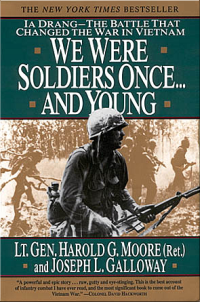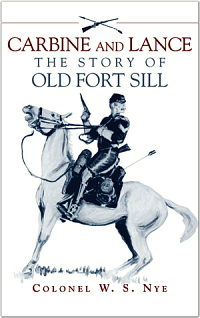American Thought
John Adams, during the summer of 1763 (before he has taken up politics), publishes his first three essays anonymously in the Boston Gazette—the first on private revenge; the second, a two part essay concerning self-deception; and, the third, a defense of his first essay against charges of pacifism.
Resistance to sudden violence, for the preservation not only of my person, my limbs and life, but of my property, is an indisputable right of nature which I never surrendered to the public by the compact of society, and which, perhaps, I could not surrender if I would.
| No. I.—On Private Revenge. | No. II.—On Self-Delusion. | No. III.—On Private Revenge. |

Essays.
The First Series.
—————
No. III.—On Private Revenge.
Boston Gazette, SEPTEMBER 5, 1763.
Impiger, iracundus, inexorabilis, acer,
Jura neget sibi nata, nihil non arroget armu.
Hor.
Rebuke the spearmen, and the troops
Of bulls that mighty be.
Novang.
TO THE PRINTERS.

John Adams.
IT seems to be necessary for me, (notwithstanding the declaration in my last) once more to digress from the road of agriculture and mechanic arts, and to enter the list of disputation with a brace of writers in the Evening Post, one of whom has subscribed himself X, and the other W. I shall agree with the first of these gentlemen, that “to preach up non-resistance with the zeal of a fanatic,” would be as extraordinary as to employ a bastile in support of the freedom of speech or the press, or an inquisition in favor of liberty of conscience; but if he will leave his own imagination, and recur to what I have written, he will not find a syllable against resistance. Resistance to sudden violence, for the preservation not only of my person, my limbs and life, but of my property, is an indisputable right of nature which I never surrendered to the public by the compact of society, and which, perhaps, I could not surrender if I would. Nor is there any thing in the common law of England, (for which Mr. X supposes I have so great a fondness,) inconsistent with that right . On the contrary, the dogmas of Plato, the maxims of the law, and the precepts of Christianity, are precisely coincident in relation to this subject.
Plato taught that revenge was unlawful, although he allowed of self-defence. The divine Author of our religion has taught us that trivial provocations are to be overlooked; and that if a man should offer you an insult, by boxing one ear, rather than indulge a furious passion and return blow for blow, you ought even to turn the other also. This expression, however, though it inculcates strongly the duty of moderation and self-government upon sudden provocations, imports nothing against the right of resistance or of self-defence. The sense of it seems to be no more than this: that little injuries and insults ought to be borne patiently for the present, rather than run the risk of violent consequences by retaliation.
Now, the common law seems to me to be founded on the same great principle of philosophy and religion. It will allow of nothing as a justification of blows, but blows; nor will it justify a furious beating, bruising, and wounding, upon the provocation of a fillip of the finger, or a kick upon the shins; but if I am assaulted, I can justify nothing but laying my hands lightly upon the aggressor for my own defence; nothing but what was absolutely necessary for my preservation. I may parry or ward off any blow; but a blow received is no sufficient provocation for fifty times so severe a blow in return. When life, which is one of the three favorites of the law, comes into consideration, we find a wise and humane provision is made for its preservation. If I am assaulted by another, sword in hand, and if I am even certain of his intention to murder me, the common law will not suffer me to defend myself, by killing him, if I can avoid it. Nay, my behavior must absolutely be what would be called cowardice, perhaps, by Mr. X and W, though it would be thought the truest bravery, not only by the greatest philosophers and legislators, but by the best generals of the world; I must run away from such an assailant, and avoid him if I have room, rather than stand my ground and defend myself; but if I have no room to escape, or if I run and am pursued to the wall or into a corner where I cannot elude his fury, and have no other way to preserve my own life from his violence, but by taking his there, I have an indisputable right to do it, and should be justified in wading through the blood of a whole army, if I had power to shed it and had no other way to make my escape.
What is said by Mr. W, that “if a gentleman should be hurried by his passions so far as to take the life of another, the common law will not adjudge it murder or manslaughter, but justifiable homicide only,”—by which he must mean, if in truth he had any meaning at all, that killing upon a sudden provocation is justifiable homicide,—is a position in comparison of which the observations of the grave-digger upon the death of the young lady, in Shakspeare’s Hamlet, ought to be ranked among the responsa priuleniium.
Every catechumen in law, nay, every common man, and even every porter upon the dock, that ever attended a trial for murder, knows that a sudden provocation raising a violent passion, where there is no precedent malice, is, in consideration of human frailty, allowed to soften killing from murder down to manslaughter; but manslaughter is a heinous crime, and subjected to heavy punishments.
Such is the wisdom and humanity of English law; upon so thorough a knowledge of human nature is it founded, and so well is it calculated to preserve the lives and limbs of men and the interior tranquillity of societies! I shall not dispute with Mr. X my affection for this law, in preference to all other systems of law that have ever appeared in the world. I have no connection with parishioners, nor patients, nor clients, nor any dependence upon either for business or bread; I study law as I do divinity and physic; and all of them as I do husbandry and mechanic arts, or the motions and revolutions of the heavenly bodies; or as I do magistracy and legislation; namely, as means and instruments of human happiness. It has been my amusement for many years past, as far as I have had leisure, to examine the systems of all the legislators, ancient and modern, fantastical and real, and to trace their effects in history upon the felicity of mankind; and the result of this long examination is a settled opinion that the liberty, the unalienable, indefeasible rights of men, the honor and dignity of human nature, the grandeur and glory of the public, and the universal happiness of individuals, were never so skilfully and successfully consulted as in that most excellent monument of human art, the common law of England; a law that maintains a great superiority, not only to every other system of laws, martial or canon, or civil and military, even to majesty itself; it has a never-sleeping jealousy of the canon law, which in many countries, Spain in particular, has subjected all officers and orders, civil and military, to the avarice and ambition, the caprice and cruelty of a clergy; and it is not less watchful over the martial law, which in many cases and in many countries, France in particular, is able to rescue men from the justice of the municipal laws of the kingdom; and I will own, that to revive in the minds of my countrymen a reverence for this law, and to prevent the growth of sentiments that seemed to me to be in their tendency destructive of it, especially to revive a jealousy of martial laws and cavalier-like tempers, was the turn which I designed to serve for myself and my friends in that piece which has given offence to X and W.
A certain set of sentiments have been lately so fashionable, that you could go into few companies without hearing such smart sayings as these,—“If a man should insult me, by kicking my shins, and I had a sword by my side I would make the sun shine through him;”—“if any man, let him be as big as Goliah, should take me by the nose, I would let his bowels out with my sword, if I had one, and if I had none, I would beat his brains out with the first club I could find.” And such tempers have been animated by some inadvertent expressions that have fallen from persons of higher rank and better sentiments. Some of these have been heard to say, that “should a man offer a sudden insult to them, they could not answer for themselves, but they should lay him prostrate at their feet in his own blood.” Such expressions as these, which are to be supposed but modest expressions of the speaker’s diffidence of his own presence of mind, and government of his passions, when suddenly assaulted, have been taken for a justification of such returns to an insult, and a determination to practise them upon occasion. But such persons as are watching the lips of others for wise speeches, in order to utter them afterwards as their own sentiments, have generally as little of understanding as they, have of spirit, and most miserably spoil, in reporting, a good reflection. Now, what I have written upon this subject was intended to show the inhumanity of taking away the life of a man, only for pulling my nose or boxing my ear; and the folly of it too, because I should be guilty of a high crime, that of manslaughter at least, and forfeit all my goods, besides receiving a brand of infamy.
But I have not yet finished my history of sentiments. It has been said by others that “no man ought to receive a blow without returning it;” “a man ought to be despised that receives a cuff without giving another in return.” This I have heard declared for a sober opinion by some men of figure and office and importance. But I beg leave to repeat it,—this is the tenet of a coxcomb and the sentiment of a brute; and the horse, the bull, and the cock, that I mentioned before, daily discover precisely the same temper and the same sense of honor and decency. If, in walking the streets of this town, I should be met by a negro, and that negro should lay me over the head with his cudgel, should I think myself bound in honor or regard to reputation to return the blow with another cudgel? to put myself on a level with that negro, and join with him in a competition which was most expert and skilful, at cudgels? If a mad dog should meet me and bite me, should I think myself bound in honor, (I mean before the poison had worked upon me enough to make me as mad as the dog himself,) to fall upon that dog and bite him again? It is not possible for me to express that depth of contempt that I feel for such sentiments, and for every mortal that entertains them; and I should choose to be “the butt, the jest, and contempt” of all companies that entertain such opinions, rather than to be in their admiration or esteem. I would take some other way to preserve myself and other men from such insolence and violence for the future; but I would never place myself upon a level with such an animal for the present.
Far from aiming at a reputation for such qualities and accomplishments as those of boxing or cuffing, a man of sense would hold even the true martial qualities, courage, strength, and skill in war, in a much lower estimation than the attributes of wisdom and virtue, skill in arts and sciences, and a true taste to what is right, what is fit, what is- true, generous, manly, and noble, in civil life. The competition between Ajax and Ulysses is well known.
“Tu vires sine mente gens, mihi cura futuri,
Tu pugnare potes:
Tu tan turn eorpore prodes,
Nos animo;
Pectora sunt potiora manu. Vigor omnis in illis.”
And we know in whose favor the prize was decreed.
I shall not be at the pains of remarking upon all the rodomontade in the two pieces under consideration, and Mr. X and Mr. W, and the whole alphabet of writers may scribble as many volumes as the twenty-four letters are capable of variations, without the least further notice from me, unless more reasoning and merit appear in proportion to the quantity of lines than is to be found in those two pieces. But since I have made some remarks upon them, it will, perhaps, before I conclude, be worth my while to mention one thing more in each. Mr. X tells us “that cases frequently occur where a man’s person or reputation suffer to the greatest degree, and yet it is impossible for the law to make him any satisfaction.”
This is not strictly true; such cases but seldom occur, though it must be confessed they sometimes do; but it seldom happens, very seldom indeed, where you know the man who has done you the injury, that you can get no satisfaction by law; and if such a case should happen, nothing can be clearer than that you ought to sit down and bear it; and for this plain reason, because it is necessary, and you cannot get satisfaction in any way. The law, by the supposition, cannot redress you; and you cannot, if you consider it, by any means redress yourself. A flagellation in the dark would be no reparation of the injury, no example to others, nor have any tendency to reform the subject of it, but rather a provocation to him to contrive some other way to injure you again; and of consequence would be no satisfaction at all to a man even of that false honor and delicacy of which I have been speaking, unless he will avow an appetite for mere revenge, which is not only worse than brutal, but the attribute of devils; and to take satisfaction by a flagellation in public would be only, in other words, taking a severe revenge upon yourself; for this would be a trespass and a violation of the peace, for which you would expose yourself to the resentment of the magistrate and the action of the party, and would be like running your sword through your own body to revenge yourself on another for boxing your ears; or like the behavior of the rattle-snake that will snap and leap and bite at every stick that you put near him, and at last when provoked beyond all honorable bearing, will fix his sharp and poisonous teeth into his own body.
I have nothing more to add, excepting one word of advice to Mr. W and all his readers, to have a care how they believe or practise his rule about “passion and killing,” lest the halter and the gibbet should become their portion; for a killing that should happen by the hurry of passion would be much more likely to be adjudged murder than justifiable homicide only. Let me conclude, by advising all men to look into their own hearts, which they will find to be deceitful abdve all things and desperately wicked. Let them consider how extremely addicted they are to magnify and exaggerate the injuries that are offered to themselves, and to diminish and extenuate the wrongs that they offer to others. They ought, therefore, to be too modest and diffident of their own judgment, when their own passions and prejudices and interests are concerned, to desire to judge for themselves in their own causes, and to take their own satisfactions for wrongs and injuries of any kind.
U.




















Recent Comments